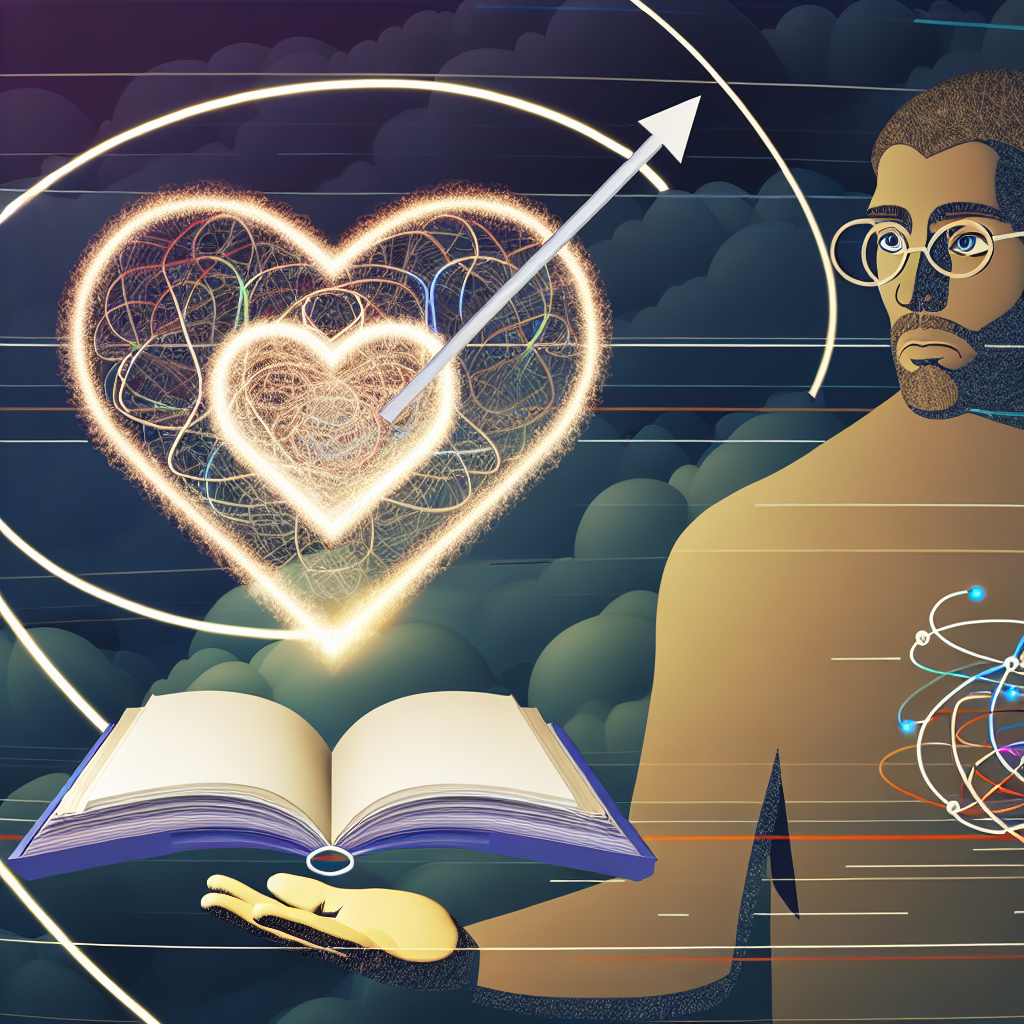Sensory Dating Strategies: A Guide for Highly Sensitive People to Thrive in Love
Navigating dating can be challenging for anyone—but for Highly Sensitive People (HSPs), it often means more than butterflies and awkward small talk. It’s navigating emotional atmospheres, dodging overstimulation, and yearning for deeper connection in a world designed for quick swipes and noisy meetups.
Luckily, dating doesn’t have to be that way. Sensory-aware dating strategies offer a refreshing alternative—one where HSPs lead with authenticity, emotional intelligence, and calm presence. Here’s how to date smarter, safer, and more meaningfully when you’re wired for depth.
Why Dating Can Be Overwhelming for Highly Sensitive People
About 15–20% of people are considered Highly Sensitive, according to Dr. Elaine Aron’s research on Sensory Processing Sensitivity (SPS). HSPs notice more—whether it’s ambient noise, nonverbal cues, or emotional undercurrents. While this superpower enhances emotional connection, it also makes traditional dating environments much more taxing.
Loud bars, rapid-fire conversations, group dates, and shallow social rituals can wear down HSPs quickly—and may even push them to avoid dating altogether. The result? Missed chances to build meaningful connections. But the real problem isn’t the person—it’s the system.
Reimagine Romance: Building Sensory-Aware Dating Experiences
To thrive in the dating world, HSPs benefit from experiences aligned with their sensitivities. Imagine swapping crowded parties for nature walks, high-pressure dinners for coffeehouse chats, or small talk for meaningful conversations. These tweaks may sound subtle, but they can make dating a nurturing, not depleting, experience.
Sensory-aware dating isn’t about turning away from love—it’s about turning toward it, with intention. Whether it’s practicing calming rituals before a date or choosing environments that relax rather than stimulate, HSPs can date from a grounded, centered place.
Diving Deeper: What Science Tells Us About HSPs and Love
Studies have revealed that HSPs experience heightened activity in brain regions responsible for empathy, awareness, and sensitivity, like the insular cortex and mirror neuron networks ([Aron et al., 2010](https://doi.org/10.1016/j.brainres.2010.08.042)). This allows HSPs to understand emotions deeply—but it also makes them more vulnerable to emotional overload in social situations.
Further, phenomena like emotional contagion—picking up another’s emotional state without realizing it—can make dating exhausting when partners are stressed or emotionally unavailable. Without proper coping tools, what could’ve been a pleasant evening may feel emotionally hazardous.
However, research also shows HSPs tend to form more resilient and intimate relationships, often valuing depth, loyalty, and authentic connection from the beginning ([Acevedo et al., 2014](https://doi.org/10.1016/j.brat.2014.07.005)). Mindful strategy—not avoidance—is key.
Smart Strategies for the Highly Sensitive Dater
Here are sensory-savvy strategies to make dating a more easeful journey:
– 🧘♀️ **Nervous System Prep:** Practice deep breathing, mindfulness, or grounding before dates to stay centered.
– 🌿 **Choose Calmer Spaces:** Opt for quieter venues like parks, cafés, botanical gardens, bookstores, or art exhibits.
– 🗨️ **Lead with Deep Talk:** HSPs are naturals at introspection—skip the small talk with thoughtful prompts like “What shaped your outlook on relationships?” or “What’s something you value that most people overlook?”
– 🧠 **Understand Polyvagal Cues:** Learn about polyvagal theory—understanding how the vagus nerve impacts your comfort and social engagement.
– 🎨 **Choose Co-Creation Dates:** Try tactile, sensory-friendly activities like pottery classes, journaling, collage-making, or gentle dance.
– 📱 **Go Digital—Mindfully:** Use apps like Hinge, Coffee Meets Bagel, or HitchMe, which prioritize meaningful questions and deeper emotional compatibility.
Recovering Energy After a Date: The Post-Date Wind-Down
HSPs may need more alone time post-date, even if things went wonderfully. Engaging emotionally and processing subtle signals takes energy. After your date, try:
– A warm bath or tea.
– Journaling your thoughts and reactions.
– Listening to calming music.
– Gentle stretching or restorative yoga.
This helps your nervous system recalibrate and integrate the experience, rather than holding onto residual stress or energetic noise.
Dating with Sensitivity Is a Strength, Not a Setback
Being a Highly Sensitive Person does not mean you aren’t built for love—it means you’re built for a specific kind of love: one that is conscious, respectful, emotionally attuned, and profoundly real.
In redesigning their dating experiences with intention, HSPs set themselves up not only for fewer misaligned connections but for deeper, sustainable love rooted in mutual understanding. Sensitivity is not a flaw—it’s a filter, helping you curate more meaningful romantic experiences.
Final Thoughts: Embrace the Gift of Depth in Dating
Sensory-aware dating helps HSPs lead with authenticity, not anxiety. It acknowledges the unmatched strength of subtleties, mindfulness, and emotional depth. Rather than forcing HSPs to “toughen up” or blend in, these strategies invite them to bloom in contexts where their essence is appreciated and understood.
You deserve a romantic life that feels calm, exciting, and emotionally true. So skip the noise—and listen to what your sensitivity is really saying: You’re wired for meaningful love.
Concise Summary:
Highly Sensitive People (HSPs) can thrive in the dating world by adopting sensory-aware strategies that cater to their unique needs. This guide explores why traditional dating can be overwhelming for HSPs, offers science-backed insights into their emotional processing, and provides practical tips to design romantic experiences that nurture their strengths. From choosing calmer environments to prioritizing deep connection, HSPs can embrace their sensitivity as a superpower, not a setback, in their quest for fulfilling relationships.
References:
1. Aron, E. N., & Aron, A. (1997). Sensory-processing sensitivity and its relation to introversion and emotionality. *Journal of Personality and Social Psychology, 73*(2), 345–368. [https://hsperson.com](https://hsperson.com)
2. Acevedo, B. P., Aron, E. N., Pospos, S., & Jessen, D. (2014). The Highly Sensitive Brain: An fMRI study of sensory processing sensitivity and response to emotions. *Brain and Behavior, 4*(4), 580–594. [https://doi.org/10.1002/brb3.242](https://doi.org/10.1002/brb3.242)
3. Aron, E. N., Aron, A., & Jagiellowicz, J. (2010). Sensory Processing Sensitivity: A review in the light of the evolution of biological responsivity. *Personality and Social Psychology Review, 14*(3), 296–307. [https://doi.org/10.1177/1088868310366147](https://doi.org/10.1177/1088868310366147)
4. HitchMe: Emotional-Matching Dating Platform [https://www.hitchme.com](https://www.hitchme.com)

Dominic E. is a passionate filmmaker navigating the exciting intersection of art and science. By day, he delves into the complexities of the human body as a full-time medical writer, meticulously translating intricate medical concepts into accessible and engaging narratives. By night, he explores the boundless realm of cinematic storytelling, crafting narratives that evoke emotion and challenge perspectives. Film Student and Full-time Medical Writer for ContentVendor.com




